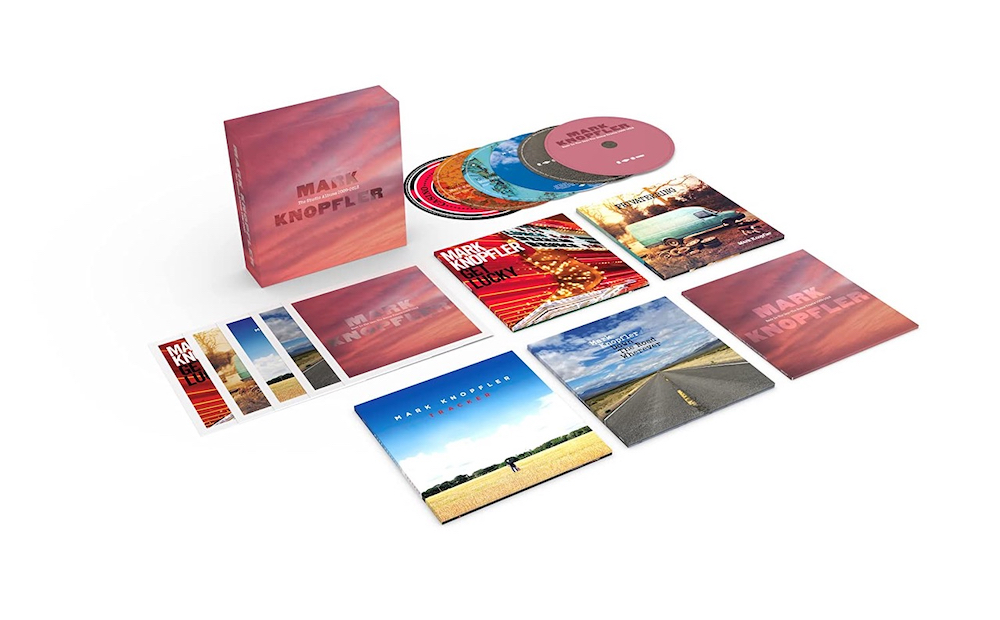Your first question about the recently released 2018 remix of Pink Floyd’s Animals might well be, “Why did a 2018 remix take four years to come out?” The answer is that it took the group’s Roger Waters and David Gilmour that long to resolve a dispute about liner notes. Waters, who bills himself on his website as “the creator of the golden years of Pink Floyd,” wanted to include them while guitarist David Gilmour did not.
And that’s far from the only seemingly petty thing the two have been bickering about for decades. Waters, for example, has claimed that Gilmour hasn’t accorded him sufficient credit for such contributions as the tape loop on “Money” on The Dark Side of the Moon.
Given such disputes, it seems both ironic and fitting that Animals, which first appeared in 1977, focuses on the shortcomings of humans. The group’s 10th studio album, it employs lyrics that portray people as pigs (the hypocritical upper class), sheep (the mindless masses), and dogs (capitalist bosses) and was reportedly inspired by social and political conditions at the time in Britain.
It isn’t quite as gloomy as its Orwellian lyrics suggest, however, because its richly textured music – which at this point should need little introduction to Floyd fans – is largely instrumental. It’s also engrossing (but don’t hold your breath waiting for a melody – you’d die in the process).
Somewhat of a departure from its massively successful immediate predecessors, 1973’s The Dark Side of the Moon and 1975’s Wish You Were Here, Animals’ music is more biting and rawer. It feels almost like a Waters solo project. It does owe a considerable debt to Gilmour’s dynamic guitar work, and Nick Mason and Richard Wright also make notable contributions. But while the earlier albums feature material written by all four members of the group, Waters wrote nearly all this music and provides most of the lead vocals. (The sole exception is the 17-minute “Dogs,” for which Gilmour shares composing credits and lead vocals.)
As for this new version of the record, one bit of good news is that unlike many of today’s reissues of classic rock LPs, it doesn’t require you to shell out big bucks for a fat box that features multiple audio formats and assorted other extras that you may or may not want. You can purchase a limited-edition package that includes the album on a CD, LP, Blu-ray, and DVD; but you can also buy each of those items separately, as well as a copy of the recording on an SACD disc.
On the negative side, this edition of Animals incorporates no bonus material, nor are there new liner notes: Gilmour apparently won that battle, though Waters has posted the disputed notes on his website. In fact, the 2022 release introduces only three things: an updated version of the original album’s cover image of a U.K. power station building with a pig floating above it; the 2018 remix; and, on the Blu-ray and SACD, a 5.1 surround-sound version of that remix. (A high-res copy of the original 1977 mix is included, as well.)
Neither the new artwork nor the remix – which brings changes that all but rabid fans will likely consider subtle – offers much reason to replace your current copy of Animals. But if you don’t own the album or have a worn vinyl copy, the new version is worth buying. And if you have surround-sound equipment, a strong case exists for picking up the Blu-ray or SACD, because the 5.1 audio does represent a major sonic upgrade.
Solo Mark Knopfler, Chapter Two

Dire Straits frontman Mark Knopfler’s The Studio Albums 1996–2007, which came out last spring, delivered remastered copies of his first five solo LPs (not counting film soundtracks), plus a disc with B-sides. Now comes a sequel: The Studio Albums 2009–2018, a box that includes remastered versions of Knopfler’s next four solo releases (again excepting soundtracks): Get Lucky (from 2009), the two-disc Privateering (2012), Tracker (2015), and Down the Road Wherever (2018). The set, which is available on six CDs or nine vinyl LPs, also includes 23 noteworthy B-sides and other bonus tracks, among them two previously unreleased numbers: the jazzy “Back in the Day” and the sweet, midtempo “Precious Voices from Heaven.”
Like the earlier box, this one offers little of Knopfler’s head-turning rock guitar pyrotechnics, which was a Dire Straits trademark. That’s not to say that you won’t hear wonderful guitar work here, but it tends to be relatively understated on these albums, where it shares center stage with his warm baritone and accompanists who play such instruments as clarinet, flute, pennywhistle, uilleann pipes, fiddle, and cittern (a stringed instrument similar to a lute). As on his earlier albums, Knopfler offers a preponderance of character sketches and story songs, many told in the first person. The subject matter and musical approaches are all over the place, but the albums nevertheless feel cohesive and the performances are consistently first-rate.

Get Lucky opens with the sprightly “Border Reiver,” the tale of a truck driver heading south from Glasgow, Scotland, and one of many songs here that evidence Celtic and Irish influences. Other highlights include the sweet “Monteleone,” which is gentle and dreamy enough to pass for a lullaby, and the nostalgic “Before Gas and TV.” Like many double albums, the ambitious Privateering could probably have benefited from a little trimming, but cutting enough to fit this release onto a single disc wouldn’t have been easy. The elegantly structured “Dream of the Drowned Submariner,” which includes nods to classical music, is just one of many standouts.
Tracker is loaded with highlights as well. “River Towns,” a first-person tale of an apparent alcoholic living in a flophouse, features trumpet as well as sax by Nigel Hitchcock that’s as evocative as anything from Clarence Clemons. Another high point is “Mighty Man” (one of several tracks to feature guest vocals by the Wailin’ Jennys’ Ruth Moody), which limns a drifter who spent “a lifetime of digging trenches in the cold and wet weather” and tells his son “I was best off away.” Down the Road Wherever, the last release in this anthology, pulls its title from a line in “One Song at a Time,” a seemingly autobiographical tale in which Knopfler sings that “it’s 1979 and I’m picking my way out of here, one song at a time.” And so he did, thanks to the abundant talent that’s evident throughout this terrific box.
A Rory Block Blockbuster

In 2018, Rory Block introduced her Power Women of the Blues project with an album featuring material associated with Bessie Smith. Two years later, a second volume in the series appeared with songs that had once been recorded by such progenitors as Ma Rainey and Memphis Minnie. Now, on Ain’t Nobody Worried, Block widens her “power women” theme to pay tribute to more contemporary material and to artists from the pop and soul worlds as well as blues singers. This may seem surprising unless you’re familiar with her large catalog, which despite a blues emphasis, has at times embraced material that has more to do with rock, pop, or even disco.
The 11-track Ain’t Nobody Worried, which features songs that gained popularity in the sixties, seventies, and eighties, is excellent. Highlights include a version of Gladys Knight’s “Midnight Train to Georgia” that rivals the original, a jazzy reading of Mary Wells’s “My Guy,” and an affecting cover of Bonnie Raitt’s “Love Has No Pride.” Also compelling is the sole Block original, “Lovin’ Whiskey,” the emotionally raw number that, as she says in the liner notes, “launched my career…and has remained my most popular song for over three decades.”
Jeff Burger’s website, byjeffburger.com, contains five decades’ worth of music reviews, interviews, and commentary. His books include Dylan on Dylan: Interviews and Encounters, Lennon on Lennon: Conversations with John Lennon, Leonard Cohen on Leonard Cohen: Interviews and Encounters, and Springsteen on Springsteen: Interviews, Speeches, and Encounters.



